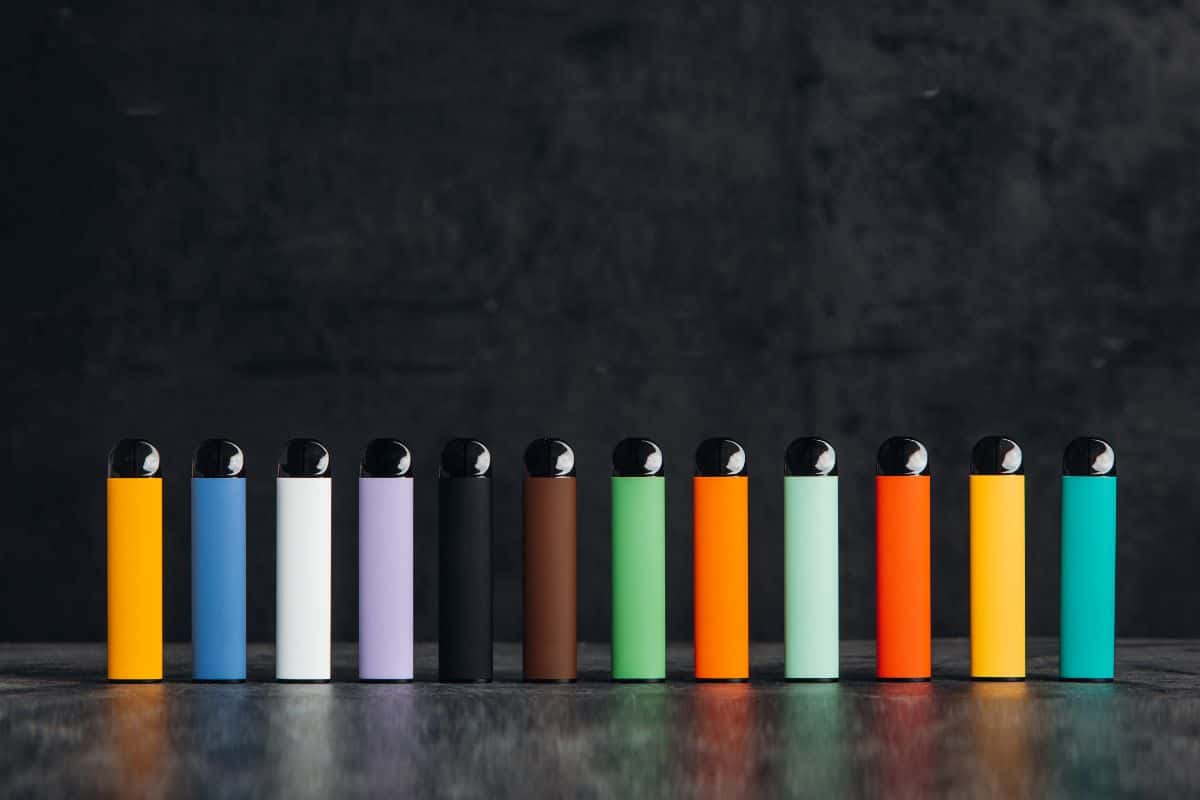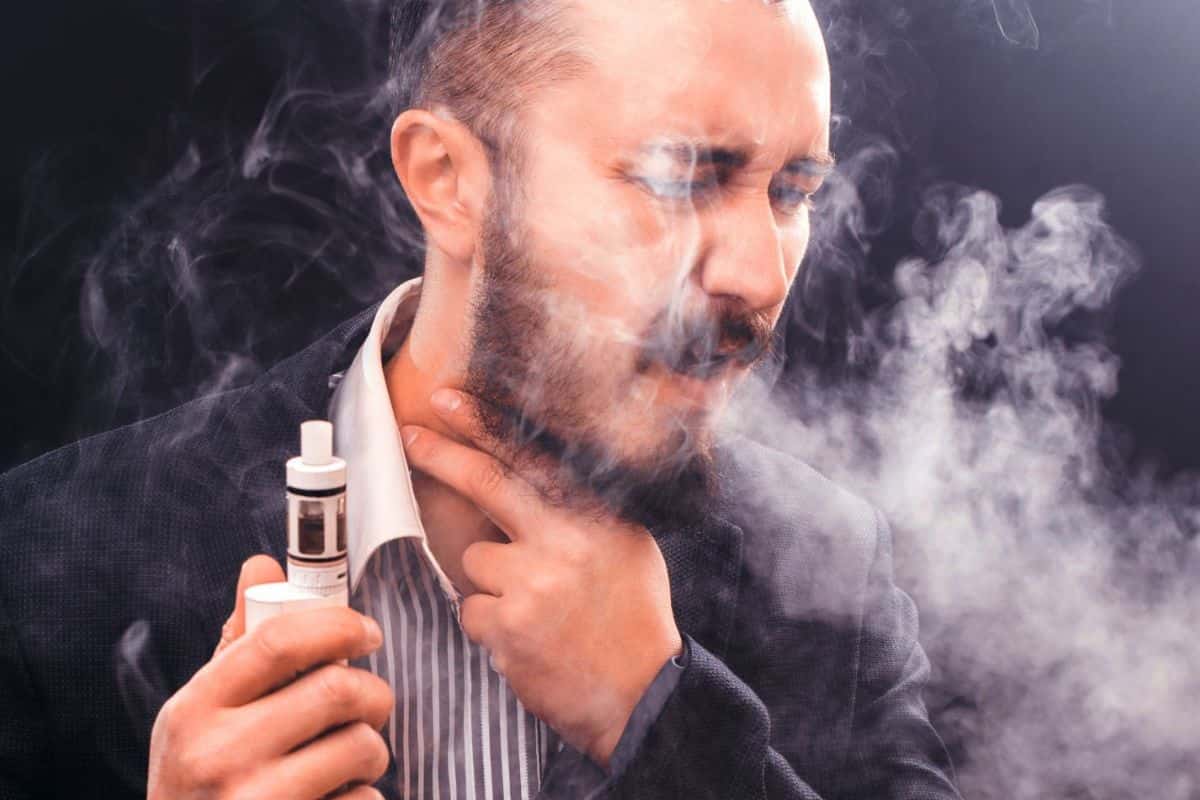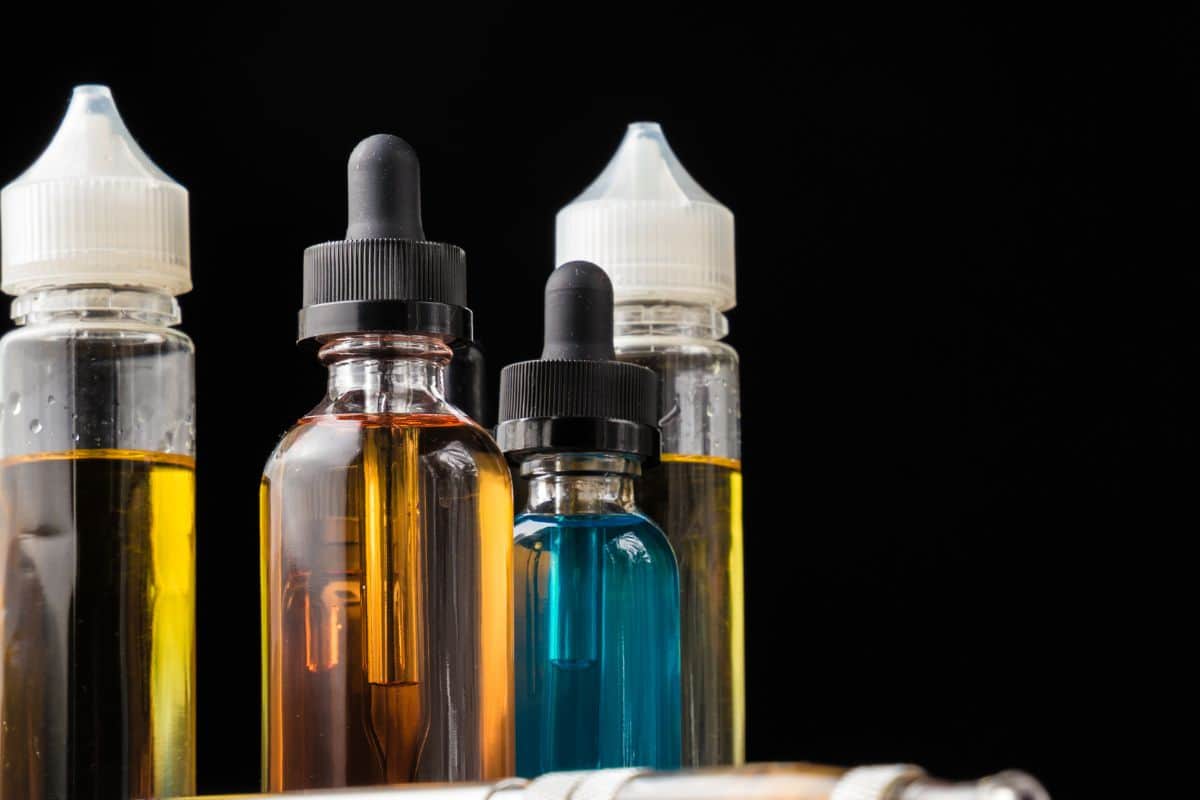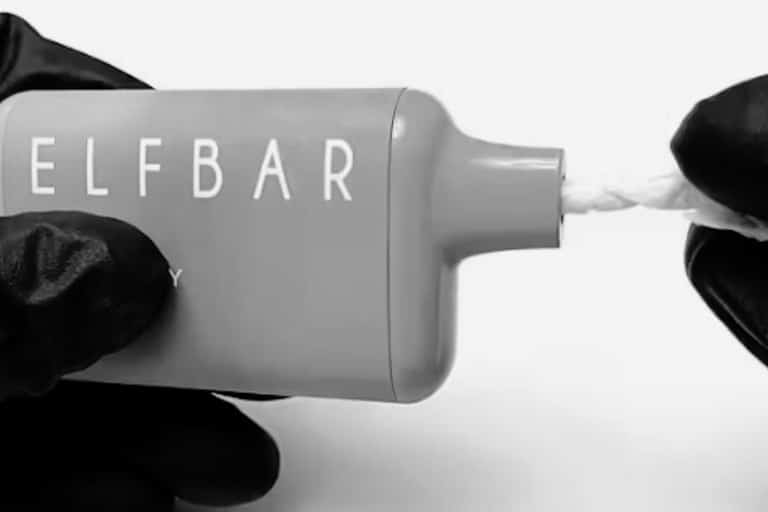How to Stop Dizziness from Vaping: Effective Remedies and Prevention Tips
Experiencing dizziness after vaping is a sign that your body may be reacting to certain components in the e-liquid, the nicotine content, or even the act of vaping itself. Many people report symptoms of dizziness and lightheadedness, which can be unsettling and lead to further health concerns if not addressed properly. Understanding your body’s response to vaping is the first step in managing and ultimately stopping these unpleasant sensations.
To tackle this issue, it is important to consider various factors like the nicotine levels in your e-liquid, your vaping habits, and overall health. Nicotine is a known stimulant and in high doses, it can cause your blood vessels to narrow and lead to dizziness. Adjusting the nicotine strength can often help. Meanwhile, dehydration is another common culprit behind dizziness from vaping, as the propylene glycol in vape juice has a hygroscopic effect, meaning it can draw moisture from your mouth and throat.
NEW CUSTOMER DISCOUNT
Save 15%
15% OFF YOUR ENTIRE ORDER FOR NEW CUSTOMERS USE CODE WELCOME15!

Taking breaks between vaping sessions, staying hydrated, and monitoring the nicotine intake are practical initial steps. For those who find these strategies do not alleviate symptoms, seeking advice from healthcare professionals or looking into quitting smoking and vaping might be necessary. These resources can provide structured approaches, supportive tips, and medical insight into how to stop dizziness caused by vaping and improve your overall well-being.
Table of Contents
Understanding Dizziness from Vaping
When you vape, one of the side effects you may experience is dizziness. This feeling of unsteadiness or lightheadedness can be concerning, but understanding why it happens can help you address the issue effectively.
Several factors contribute to dizziness during or after vaping:
- Nicotine Content: High levels of nicotine absorbed quickly into your bloodstream can lead to a temporary drop in blood pressure, causing you to feel dizzy.
- Dehydration: Vaping can cause dehydration, which is when your body loses more fluids and electrolytes than you’re taking in. Insufficient hydration can lead to dizziness.
- Vaping Technique: Inhaling too much vapor or taking deep, long drags can cause you to hyperventilate and experience dizziness as a result of changes in breathing patterns.
To minimize dizziness from vaping, consider the following tips:
- Hydrate regularly with water before and after vaping.
- Moderate your vaping sessions and take smaller puffs.
- Choose e-liquids with a lower nicotine concentration.
If you experience persistent or severe dizziness, it’s essential to consult a healthcare professional, as it could indicate a more serious health issue unrelated to vaping. Remember that your health and well-being are paramount, and addressing symptoms like dizziness can greatly improve your vaping experience.
Health Risks of Vaping

When you choose to vape, you’re inhaling an aerosol that often contains nicotine, flavorings, and other chemicals. Nicotine, a highly addictive substance found in many e-cigarettes, can lead to nicotine addiction and increase your heart rate. Moreover, it’s not just nicotine; e-cigarettes can contain substances like THC, the psychoactive compound in marijuana, and other chemicals that may pose risks to your health.
Vaping has been associated with various negative health effects. You might experience headaches, nausea, and cough as immediate symptoms. Vasodilation and oxygen deprivation are physiological effects that can occur due to nicotine’s presence. Over time, there’s a concern about the risk of developing chronic conditions such as asthma or even cancer.
A serious lung condition known as EVALI (e-cigarette or vaping product use-associated lung injury) has been linked to vaping, particularly when products contain vitamin E acetate or other harmful additives. While smoking traditional cigarettes is well-known for its health risks, don’t be misled into thinking that vaping is a safe alternative. The aerosols in e-cigarettes can contain harmful substances apart from nicotine, including a variety of chemicals that are not safe to inhale.
If you’re experiencing dizziness from vaping, it may be a warning sign to reevaluate your usage. Your health is paramount, and understanding the risks associated with vaping is crucial to making informed decisions about your well-being.
E-Liquids and Nicotine Content

When addressing the issue of dizziness during vaping, understanding e-liquids and their nicotine content is crucial. E-liquids are solutions used in electronic cigarettes that create vapor when heated. These liquids generally consist of propylene glycol, vegetable glycerin, flavorings, and nicotine.
Nicotine levels in e-liquids can vary, and they play a significant role in how your body reacts to vaping. They are usually expressed in milligrams per milliliter (mg/mL):
- Low: 6 mg/mL or less
- Medium: 9-16 mg/mL
- High: 18-36 mg/mL
- Very High: Over 36 mg/mL
The two common forms of nicotine in e-liquids are:
- Freebase Nicotine: This is the pure form of nicotine, typically found at higher levels in e-liquids. It can be more potent and may contribute to dizziness if used excessively.
- Nicotine Salts: These contain a combination of nicotine and another organic component, allowing for higher nicotine concentrations without the harshness, potentially reducing dizziness for some users.
To manage or stop dizziness from vaping:
- Examine the Nicotine Strength: Consider using an e-liquid with a lower nicotine level to reduce the intensity of your body’s reaction.
- Type of Nicotine: If you’re using freebase nicotine, try switching to nicotine salts, which may offer a smoother experience at higher nicotine concentrations.
Remember, your response to nicotine is personal, and it’s essential to find a balance that suits your body’s tolerance. If you continue to experience dizziness, you should reduce your nicotine intake or seek medical advice.
Tips to Prevent and Stop Dizziness
When using e-cigarettes, you might occasionally experience dizziness. This is often preventable or manageable by adjusting certain aspects of your vaping habits, including hydration level and nicotine concentration.
Stay Hydrated
Dehydration can contribute to dizziness while vaping. Your body needs adequate fluids to function properly, so ensure that you:
- Drink water consistently throughout the day.
- Avoid caffeinated beverages, as they can increase dehydration.
Take a Break
If you feel dizzy while vaping, it’s a clear signal your body is telling you to take a break. Doing so allows your body to adjust and can help prevent dizziness by:
- Sitting down or resting briefly.
- Stopping vaping immediately until the dizziness subsides.
Lower Nicotine Concentration
Nicotine can affect blood pressure, leading to dizziness. To reduce this risk:
- Choose e-liquids with a lower nicotine concentration.
- Gradually reduce nicotine levels to minimize potential dizziness.
Inhalation Technique
How you inhale can influence the onset of dizziness. To improve your inhalation technique:
- Take shorter, slower puffs rather than deep, forceful ones.
- Ensure you breathe normally between puffs to maintain proper oxygen levels.
Strategies for Reducing Nicotine Intake
When addressing dizziness associated with vaping, closely monitoring your nicotine intake is critical. To minimize such discomfort, consider the following plan of action:
- Choose Lower Nicotine Concentrations: Begin by selecting e-liquids with reduced nicotine levels. Gradually decrease the nicotine strength to allow your body to adjust without the harsh side effects.
- Monitor Usage: Pay attention to how often you use your vape. Attempt to reduce the frequency of use over time.
- Nicotine Replacement Therapies (NRT): Incorporate NRTs like patches, lozenges, or gum. These products can help manage your cravings and reduce reliance on your vape.
- Hydration and Diet: Stay well-hydrated and maintain a balanced diet. This can help manage symptoms like dizziness.
- Professional Support: Consider seeking support from healthcare professionals who specialize in addiction. They might suggest strategies tailored to your specific needs.
- Create a Plan: Set clear goals for quitting vaping. Establish a timeline and milestones to help track your progress.
Remember, patience and commitment are essential when lowering nicotine dependency. Progress may be slow, but your perseverance will pay off.
The Role of Hydration in Vaping

When vaping, you may be susceptible to dehydration because propylene glycol (PG) and vegetable glycerin (VG), both common ingredients in e-liquids, can attract and hold water molecules. This hygroscopic nature means that while you vape, these substances can pull moisture from your mouth and throat, leading to dry mouth and discomfort.
To prevent these symptoms, it’s important to prioritize staying hydrated. Here are specific steps you can take to maintain proper hydration:
- Drink Water: Consume a sufficient amount of water throughout the day, particularly before and after vaping sessions.
- Monitor Your Body: Pay attention to signs of dehydration, such as thirst, dry skin, or fatigue. If you experience dizziness, it may be a signal to increase your fluid intake.
- Limit Caffeine and Alcohol: These substances can further dehydrate you. Try to reduce your intake if you’re an active vaper.
| Signs of Dehydration | Action to Take |
| Dry Mouth | Sip on water |
| Thirst | Drink fluids regularly |
| Dizziness | Rest and rehydrate |
Remember, staying hydrated isn’t just about drinking fluids. It also involves being aware of the dehydrating properties of vaping and adjusting your habits accordingly. Maintaining a balance is essential for your overall well-being while enjoying your vaping experience.
Coping with Nicotine Withdrawal
When you decide to stop using nicotine, either from vaping or smoking cigarettes, understanding how to manage withdrawal symptoms becomes crucial. Nicotine withdrawal can lead to cravings, anxiety, headaches, tiredness, and sweating — all signals of your body adjusting to the absence of nicotine.
Dopamine, a neurotransmitter associated with pleasure, drops when you quit, which may increase stress levels. Here’s how to navigate these challenges:
- Stay Hydrated: Drink plenty of water. It can help reduce headaches and fatigue.
- Balanced Diet: Maintain a diet rich in fruits, vegetables, and whole grains to keep energy levels stable.
- Regular Exercise: Engage in physical activities to boost your mood and reduce anxiety.
- Mindfulness and Relaxation: Techniques like deep breathing or meditation can alleviate stress and cravings.
Recognize Your Triggers:
- Identify situations that increase the urge to vape and develop strategies to avoid or cope with them.
Develop a Support System:
- Reach out to friends, family, or support groups to share experiences and gain encouragement.
Consider Nicotine Replacement Therapy (NRT):
- Over-the-counter options like gums or patches can ease withdrawal symptoms. Review the role of NRT in quitting smoking for more details.
By taking these steps, you equip yourself with the tools needed to manage nicotine withdrawal effectively. Remember to consult with a healthcare professional for personalized advice and support during this journey.
Vaping Cessation Techniques
Embarking on the journey to stop using e-cigarettes involves a blend of determination, support systems, and coping strategies. Below are targeted approaches to successfully navigate through the process.
Quitting Vaping
To quit vaping, it’s essential to set a quit date and stick to it. Establishing a clear plan will prepare you for challenges. Consider writing down your reasons for quitting and keep them within sight for motivation. This can be bolstered by a support system, peer networks, or professional help, which significantly increases your chances of success.
Support and Community
Engaging with a community or a support system can offer encouragement and practical advice. Online forums and local groups provide a platform for sharing experiences and can mitigate feelings of isolation during your quitting journey. For instance, Reddit has dedicated spaces where individuals share methods and reasons for quitting, as observed in a content analysis of a quit vaping community.
Nicotine Replacement Therapy
Nicotine replacement therapy (NRT), available in forms like gum, nasal sprays, or inhalers, can alleviate withdrawal symptoms. These alternatives supply nicotine in controlled doses while sparing you from harmful chemicals in e-cigarettes. It’s advisable to consult a healthcare provider for the most suitable NRT option.
Lifestyle Changes
Incorporating lifestyle changes such as regular exercise and ensuring sufficient sleep can significantly aid in managing cravings and stress. Adopting good habits also serves as a distraction, steering your mind away from vaping. Eating a balanced diet and staying hydrated contribute to overall well-being, creating a solid foundation for quitting.
Changing Vaping Habits
In addressing dizziness caused by vaping, modifying how you vape can be essential. Understanding the effects of chain vaping, adjusting your device’s settings, and recognizing triggers are vital steps towards controlling your vaping habits effectively.
Chain Vaping and Its Effects
Chain vaping, or the act of taking multiple hits from your e-cigarette without taking breaks, can contribute to dizziness due to overexposure to nicotine. Your body needs time to process nicotine, and without sufficient breaks, you risk experiencing symptoms like dizziness or nausea. To mitigate this, consciously take breaks between sessions, allowing your body to adjust.
Vape Settings and Use
Your vape settings play a significant role in the experience and effects of vaping. High temperatures and power settings can produce more vapor, which leads to a higher intake of nicotine, potentially causing dizziness. Consider using lower settings and opting for a vape juice with less nicotine to reduce such effects. Also, ensure your vaping device is properly maintained to avoid malfunctions that could lead to unexpected nicotine exposure.
Recognizing Triggers
Being part of a vaping community can sometimes inadvertently lead to adopting habits like chain vaping. To prevent this, start recognizing social and environmental triggers that encourage heavy use. These could include certain locations, activities, or even emotions. By identifying these triggers, you can proactively alter your response and establish heathier vaping habits.

Identifying When to Seek Medical Advice
If you experience dizziness while vaping, it’s important to know when it’s more than just a passing discomfort and when to seek medical advice. Persistent or severe symptoms can be a sign of a more serious underlying issue related to your health and well-being.
Here are key symptoms that warrant immediate medical attention:
- Chest Pain: Any chest discomfort, especially if accompanied by dizziness, needs prompt evaluation.
- Shortness of Breath: Difficulty breathing or a feeling of being unable to catch your breath is a serious symptom that may require urgent care.
- Fatigue: Unusual or excessive tiredness that coincides with dizziness after vaping could indicate a health issue.
You should also consider how often you experience these symptoms. Occasional mild dizziness may not be unusual, but recurrent or worsening symptoms should be discussed with a healthcare professional.
To manage your health effectively, create a plan:
- Monitor: Keep a log of your symptoms and any potential triggers.
- Assess Severity: Judge whether the symptoms are mild, moderate, or severe.
- Take Action: Seek professional medical advice if you have severe symptoms or if mild to moderate symptoms persist.
Remember, seeking medical advice is a pivotal step in maintaining your overall health. If you’re ever unsure about the severity of your symptoms or how they may be affecting your well-being, it’s better to err on the side of caution and consult a healthcare provider.
Frequently Asked Questions
Experiencing dizziness after vaping can be concerning, but understanding the causes and remedies can help you address this issue effectively.
What can cause dizziness after using vape products?
Dizziness after vaping is often a result of nicotine absorption, which can cause a temporary drop in blood pressure, leading to lightheadedness or vertigo. Additionally, deep inhalation or vaping large amounts may exacerbate this effect.
How can I alleviate dizziness associated with vaping?
To alleviate dizziness from vaping, you might try sitting or lying down immediately when you feel dizzy, hydrating with water, and taking deep breaths. Reducing the amount of nicotine in your vape juice can also help prevent future occurrences.
What duration of symptoms is common when experiencing dizziness from vaping?
The duration of dizziness from vaping is typically short-lived. It should subside within a few minutes. If the dizziness persists or is recurrent, it may be a sign to lower the nicotine concentration or consult a healthcare professional.
Are there any side effects to be aware of when using lower nicotine or nicotine-free vape products?
Using lower nicotine or nicotine-free vape products may still produce side effects such as coughing or throat irritation since other ingredients in vape juice can affect your respiratory system, though dizziness attributable to nicotine should decrease.
What should I do if I feel sick after vaping?
If you feel sick after vaping, it’s crucial to stop using your vape device immediately, drink water, and get fresh air. Persistent or severe symptoms warrant medical attention, especially if you experience symptoms like vomiting or seizures.
Is it common to feel lightheaded after using an Elf Bar, and how can this be addressed?
Feeling lightheaded after using an Elf Bar, which is a disposable vape product, can occur just as with other vaping devices, especially if it contains nicotine. To address this, use the device less frequently, choose products with lower nicotine content, and ensure you are vaping properly, not inhaling too rapidly or deeply.







